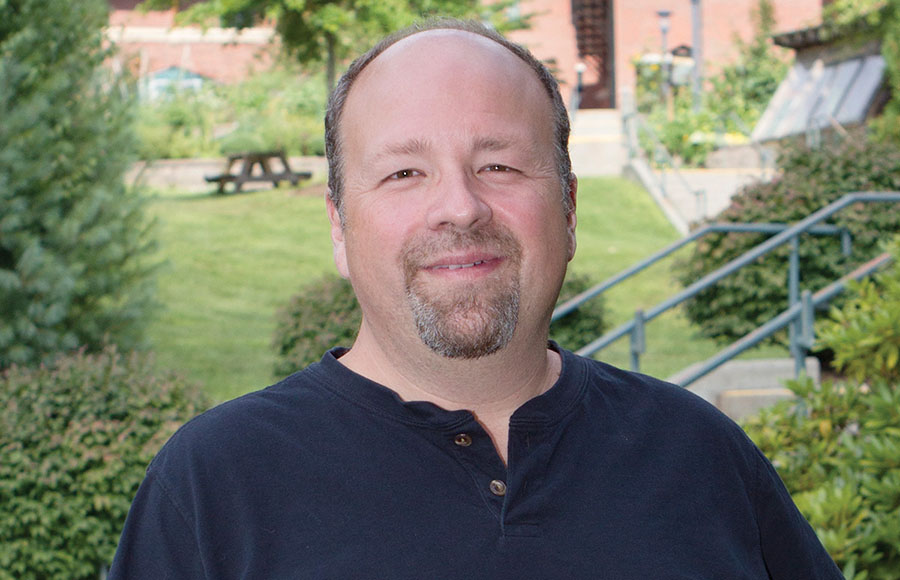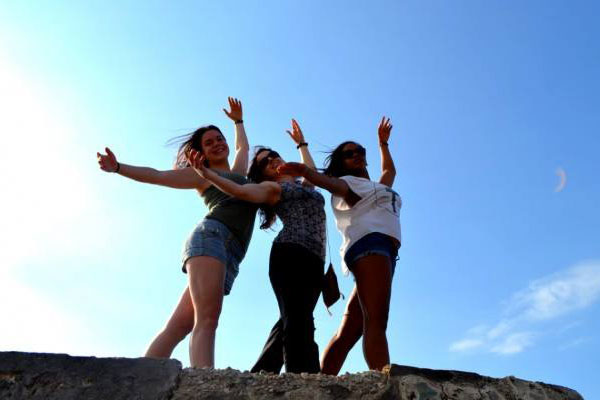What’s the difference between a tourist and a traveler? If you ask Joseph Gonzalez, he might tell you it comes down to the sort of bus you’re riding in.
Gonzalez has been traveling to Cuba regularly since 1996. In May, for the first time, a group of Appalachian State University students joined him – along with Dr. Laurie Semmes from the Hayes School of Music and faculty member Emily Daughtridge from the Department of Theatre and Dance – for a study abroad course called Rhythm and Revolution.
Gonzalez knows that some Cubans have a negative perception of visitors. He said, “They think, tourists don’t care about us. Tourists just ride around in air-conditioned buses with tinted windows.” Some Cubans actually refer to the barriers between locals and visitors as tourist apartheid. “This trip was an invitation to learn about Cuba and engage in a way that we hope will encourage respect,” he said. “As a scholar of Cuba, I write about Cuba, I publish about Cuba. But it’s also important for me to engage students in what I love. I try to get to that place between the academic and the experiential.”
Gonzalez’s students, who were placed in home stays with local families, quickly caught on to the nuances of transportation. Toward the end of the trip, they told him: “We don’t want a bus with air conditioning. We want windows that can open, so we can talk to Cubans on the street. We want to be able to wave at them.”
It was uncomfortably hot. Air conditioning would have been nice. But Gonzalez obliged, with pride. “Those Appalachian students were helping to heal fractured relationships,” he said. “They were very conscious of that.”
Gonzalez and his colleagues are headed back to Cuba in 2016, and they’ll be taking a new group of students. He said, “We’ll make some changes, but that theme of being a traveler instead of a tourist will continue to be the soul of the experience.”
What do you think?
Share your feedback on this story.
About the College of Arts and Sciences
The College of Arts and Sciences (CAS) at Appalachian State University is home to 17 academic departments, two centers and one residential college. These units span the humanities and the social, mathematical and natural sciences. CAS aims to develop a distinctive identity built upon our university's strengths, traditions and locations. The college’s values lie not only in service to the university and local community, but through inspiring, training, educating and sustaining the development of its students as global citizens. More than 6,800 student majors are enrolled in the college. As the college is also largely responsible for implementing App State’s general education curriculum, it is heavily involved in the education of all students at the university, including those pursuing majors in other colleges. Learn more at https://cas.appstate.edu.
About Appalachian State University
As a premier public institution, Appalachian State University prepares students to lead purposeful lives. App State is one of 17 campuses in the University of North Carolina System, with a national reputation for innovative teaching and opening access to a high-quality, cost-effective education. The university enrolls more than 21,000 students, has a low student-to-faculty ratio and offers more than 150 undergraduate and 80 graduate majors at its Boone and Hickory campuses and through App State Online. Learn more at https://www.appstate.edu.



![How NCInnovation Is Rethinking Economic Development in North Carolina [faculty featured]](/_images/_posts/2026/02/rethinking-economic-development-600x400.jpg)









